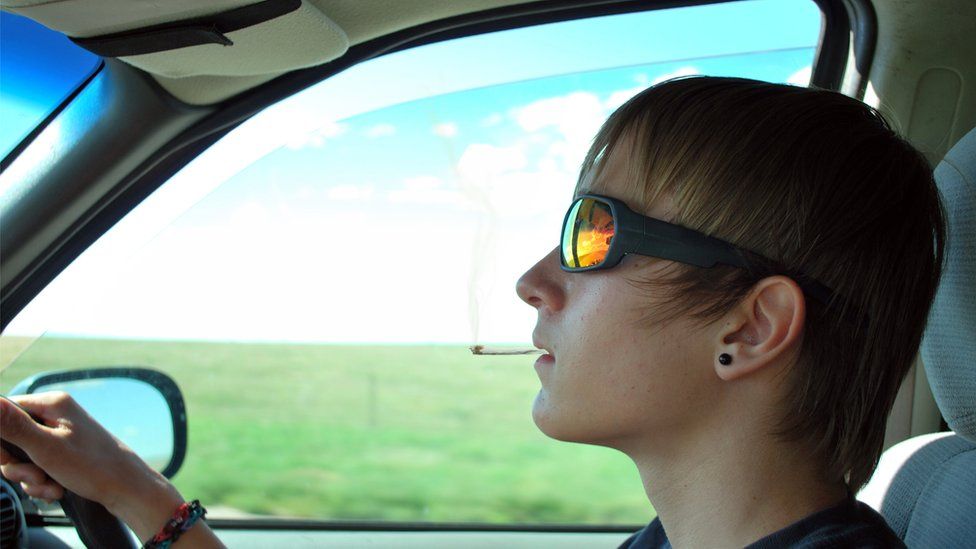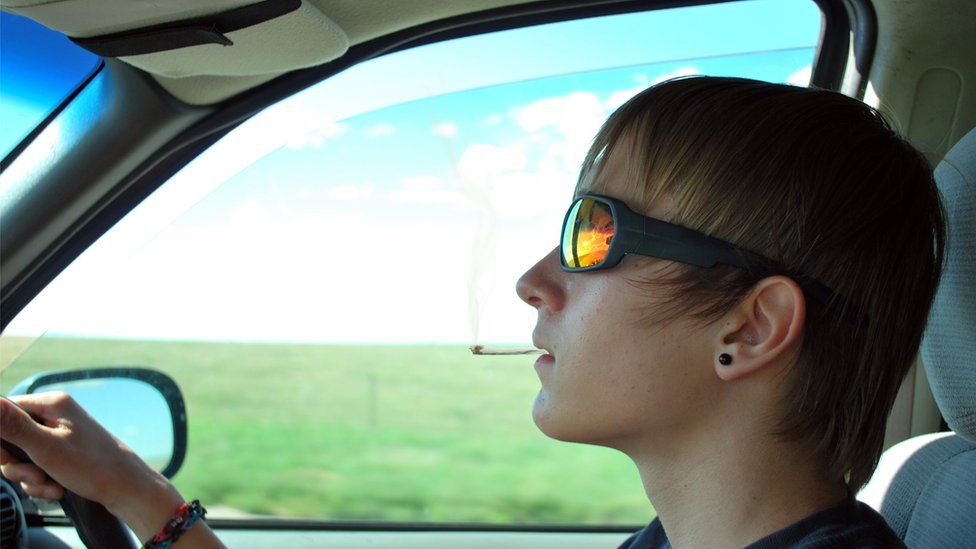
New figures suggest there are “major inconsistencies” in the number of drug driving arrests in England and Wales.
Radio 1 Newsbeat looked at the number of arrests since the law changed two years ago.
It points towards a “worrying” pattern of enforcement, says Her Majesty’s Inspectorate of Constabulary (HMIC).
Police chiefs say forces must make their own decisions about local priorities.
The National Police Chiefs Council added that police sometimes share resources in order to keep the public safe.
The drug driving law
The law changed in March 2015 (section 5A of the Road Traffic Act) to make drug driving a specific offence.
It meant police no longer had to prove motorists who had taken drugs were impaired to drive.
Instead they just had to show that drivers had above a certain limit of one of 16 types of drug (it was later increased to 17) in their blood.
Eight of the drugs are illegal substances like cannabis, cocaine or ecstasy.
Nine of them are prescription drugs including ones like codeine and methadone.

The numbers on drug driving
Newsbeat asked all 43 police forces in England and Wales how many drug driving arrests they made in the two years since the law changed – 39 replied with usable data.
Some forces made thousands of arrests. Some made hundreds. A handful made fewer than 100.
Because some forces are larger than others, Newsbeat looked at arrest numbers per force in relation to the total number of officers.
Around half made one arrest for every one, two, three or four officers.
Nine forces made one arrest for for every 10 or more officers.

These figures must be treated with caution because they can’t be taken as an accurate, like-for-like comparison between forces and don’t take into account whether drug driving is more or less common in different parts of England and Wales.
The police watchdog also says they can only offer a snapshot into how the law is policed. But that they do provide interesting insight into the much wider issue of the policing of drug driving laws.
‘My brother was killed by a drug driver’

Aiden Platt was 20 when he was hit by a drug driver near his home in Devon. He was riding his motorbike when he was knocked off and killed.
His younger brother Callum, now 19, was 17 years old at the time and says he was “crushed” by Aiden’s death.
“Everyone struggled. We were all devastated by what happened.”
People found guilty of drug driving…
-
- face a minimum driving ban of 12 months
- can be sentenced to up to six months in prison
- can be issued with an unlimited fine
- face a criminal record
Callum’s mum and dad were on holiday at the time so he was the first member of the family that police were able to contact.
“You can’t comprehend it, you can’t think about it, you can’t plan for it.

“What was easy [in daily life] became impossible,” he explains.
Callum’s parents were hit hard too. His mum, says Callum, is still struggling to come to terms with what happened.
“I can’t describe what she’s going through. She’s the most amazing mum in the world and she gave everything up for us.
“All that she wanted in return was to see that we were happy growing up. And that’s been taken away from her by someone who was on drugs who shouldn’t have been doing what they were doing.”
What police officers say

PC Neil Jones, from Cheshire Police, says roadside testing kits are the best advance in the fight against drug drivers in the 17 years he’s been a police officer.
“I think they are the single, best piece of technology that’s been introduced into the police force in 17 years,” he told Newsbeat.
“They are a simple, cheap and effective piece of equipment that allow us to see a multitude of offences.”
The view from the watchdog
Zoe Billingham from HMIC says the figures suggest there are “major inconsistencies” in the way police forces deal with drug driving across England and Wales.
“Some forces appear to be proactive in enforcing the drug driving laws, while others are not,” she told Newsbeat.
“HMIC has found similar worrying inconsistencies in other areas of policing that we have formally inspected.
“Recognising the vast range of demands on police time, chief constables should look closely at this data and decide whether this important issue of road safety is being prioritised appropriately in their force.”
But she added that “this data is only one snapshot” of the wider issue of enforcing drug driving.
The view from police chiefs
The National Police Chiefs Council said: “Drug driving is an offence all forces take seriously, but there is no ‘one size fits all’ approach.
“Individual forces make decisions about local priorities and how best to balance their demand and resourcing in order to keep the public safe.
“Some neighbouring forces might share resources to meet demand and each will have different approaches to reducing casualties on the road, depending on the risk they face.
“This means simply dividing officer numbers by arrests cannot possibly provide an accurate ‘like for like’ comparison.”
[“Source-bbc”]
